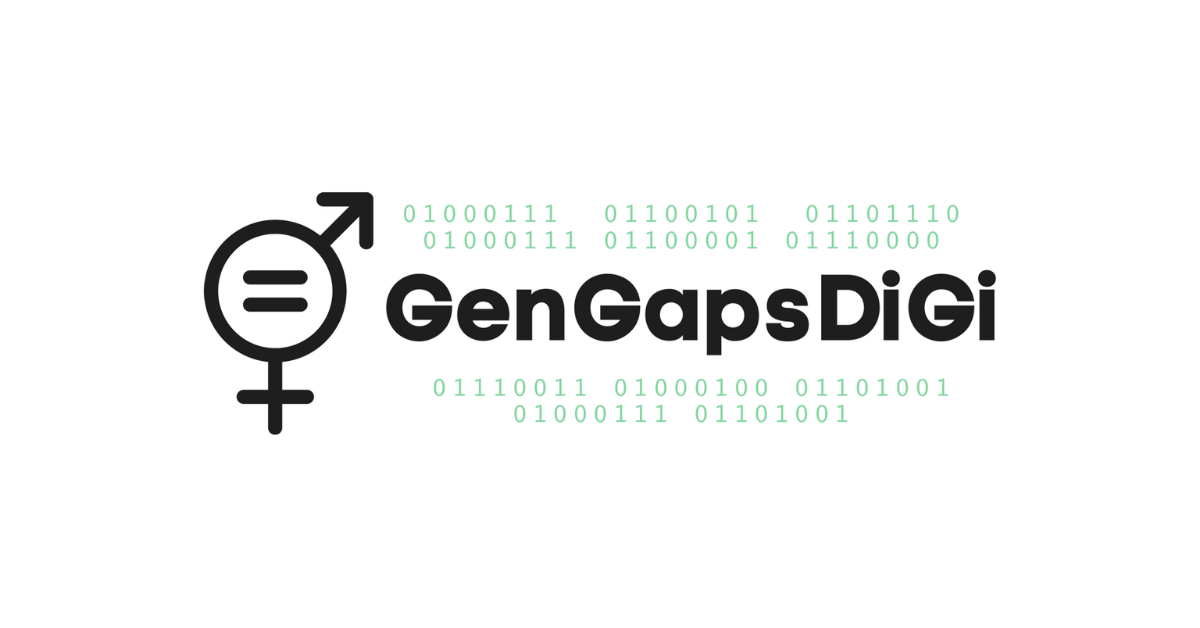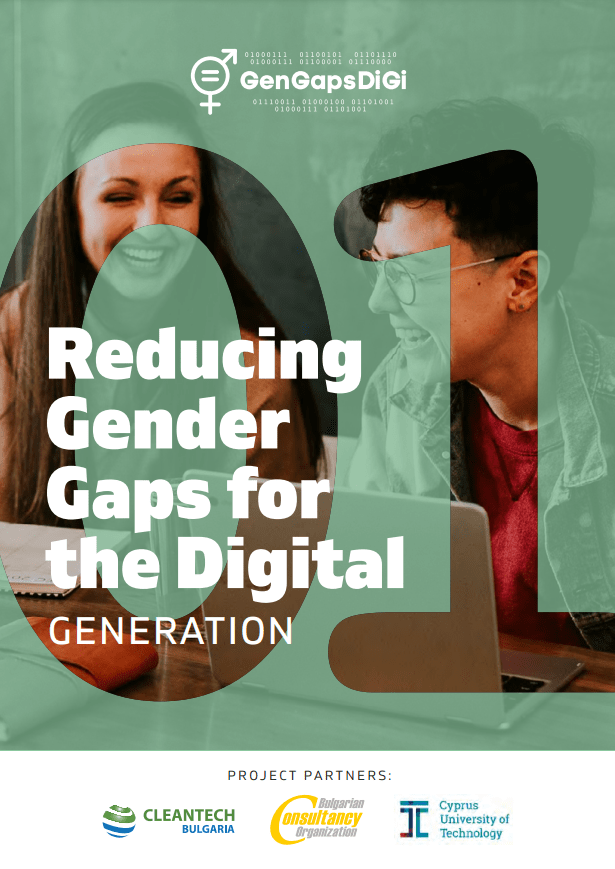
GenGapsDiGi: Reducing Gender Gaps for the Digital Generation
GenGapsDiGi – Reducing Gender Gaps for Digital Generation
Grant agreement №101005895
Duration: 15 Months
Start date: 01.11.2020
Budget: 481 446.50 Euro
Across the EU, there is a disbalance in the participation of women in the ICT-related labor market resulting from low participation of girls in technical higher education. On average for the EU, for every 1000 women, only 24 graduates in ICT-related fields. In Bulgaria, only 1/3 of employees in the ICT sector are female. In Cyprus, only 4% of women compared to 27% of men work in science, technology, engineering and mathematics (STEM) occupations.
The main factors for gender gaps in ICT are related to the negative perceptions that this is a male-dominated sector. Such stereotypes influence the career choices of young women and thus have an effect on the gender gap and the composition of the labor market. Therefore, the main objective of the GenGapsDiGi project is to contribute to a much-needed change of mindset and thus transform the BG and CY environment to support and encourage girls and young women to be confident about building a career in ICT.

The GenGapsDiGi project will have a positive impact on reducing gender gaps in career choices in the following ways:
- First, GenGapsDigi will increase the knowledge and capacity of school teachers from rural/semi urban regions to apply new teaching methods for digital gender skills. Thus, the project will engage and motivate young women to pursue a career in ICT by encouraging them, showing them best practices and success stories of women in ICT, connecting them to education and employment providers. The application of game design methods and entrepreneurship will further increase positive impact on young people facing career choices, thus transforming younger generations.
- GenGapsDigi will also positively impact companies by providing them the means and methodologies to attract female talent in their teams, thus increasing productivity. The combination of these behavior change levers will increase female confidence for ICT, will decrease negative stereotypes and will reshape the labor market to be more equal and inclusive.
- Finally, by engaging public authorities on the subject matter, GenGapsDigi will predispose for a more stimulating policy environment, supporting the closing of gender gaps in ICT inclusively and in the long-term.
Main objectives of the GenGapsDigi Project:
- To challenge gender stereotypes surrounding ICT- related sectors and thus reach equality in decision- making, specifically career choice;
- To provide formats for the training of digital skills in geographic regions where these are less developed;
- To enhance young women’s digital entrepreneurship and thus build confidence in the female digital workforce of the future
- To generate a sustainable model where key stakeholders (job and education providers) act in a positive feedback loop by applying behavioral levers
- To reduce gender and labor market inequalities in areas outside of large cities
Expected outcomes from the implementation of the project:
- Increase the knowledge and capacity of school teachers to apply new teaching methods for digital gender skills
- Connect ICT students to companies – 60 ICT students connected to 20 ICT companies
- Connect prospective university students to ICT faculties – 100 prospective university students from semi- urban areas in CY and BG connected to 10 university faculties
- Inform school and university students to take alternative career paths and decreased stereotypes about gender in ICT
- Provide knowledge to school and university teachers on how to motivate gender unbiased career choices – 60 teachers/ lecturers received the knowledge and materials to motivate gender- unbiased career choices in ICT